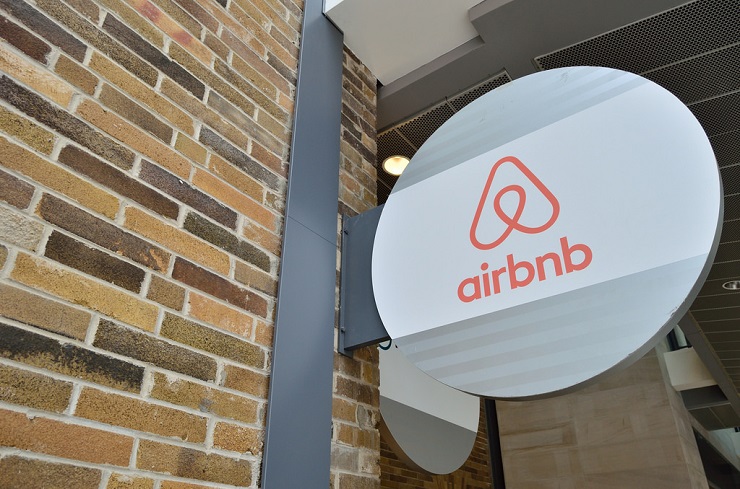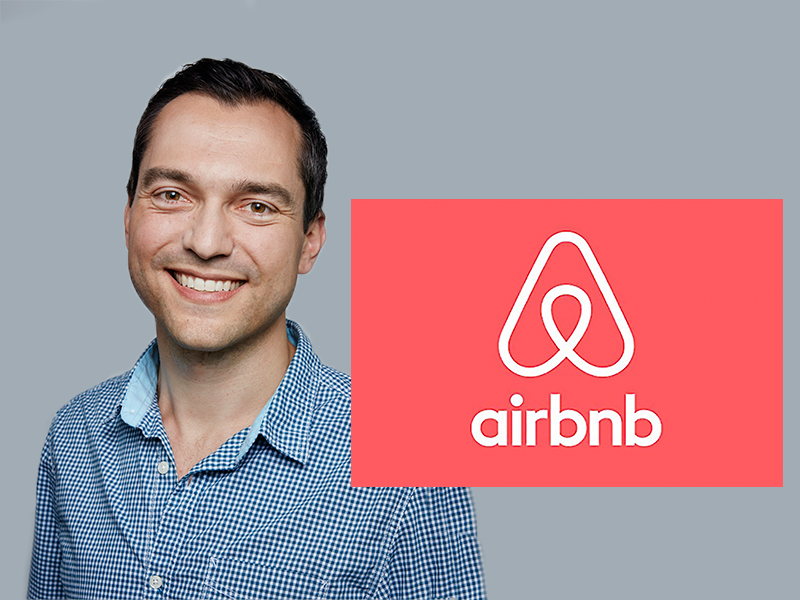The chief strategy officer of the travel-rental firm explores the advantages and disadvantages of the "digital nomad" lifestyle.
Airbnb Inc., a home-sharing startup that was first immobilized by pandemic lockdowns but has since recovered thanks to the recent tourism boom, is placing its bet that remote employment will continue to grow.

About a quarter of Airbnb's income now comes from stays of 28 days or more, which are typically undertaken by so-called "digital nomads" who may do business from various locations. Additionally, the business eliminated compensation tiers based on cost of living this year for its 6,000 workers, enabling them to work up to 90 days a year from any area where Airbnb conducts business.
Following the lead of Tulsa, Oklahoma, which recruited more than 1,600 individuals and increased the region's economy by about $20 million last year, the business recently produced a policy guide for towns and nations that wish to entice remote workers.
Nathan Blecharczyk, co-founder of Airbnb and its chief strategy officer, discussed how he sees the remote work revolution developing in this brief Q&A session.

Q: What is the justification for the policy document on remote work?
A: The need for remote work is really high. The strategic ramifications for towns and cities are what make this intriguing. In the past, communities have put a lot of effort into luring businesses to boost their economies. And now there's a way to tell the employees and their families directly why this community is a terrific place from a quality-of-life standpoint. The choice between a high-paying work and a good quality of life is not forced on employees. They may possess both.
Q: Since so many people have moved there, the cost of living has surged in many locations that are appealing to remote workers. Is it something you're discussing with these cities?
A: Everything has advantages and disadvantages; what is gentrification to one person may be economic progress to another. This phenomena is undoubtedly stirring up some discussion, and I believe that's typically a good thing. People were moving to distant areas and states like Florida during the epidemic, where they simply overheated. However, I believe the opportunity may be dispersed across a larger surface area when we enter a steady state.
Q: Have you seen any effects of Airbnb's remote work policy on employee engagement or satisfaction?
A: We observed that engagement did not vary much during the epidemic. I believe that because of all that was going on around the globe, people's opinions and sentiments towards the business may have been somewhat fixed. The mindset about remote work is something we did notice shifting quite a bit. When we questioned workers in September 2020 about their desire to visit the office less frequently than once per week—basically, to not be there—the response was 37%. November 2021 saw a 59% increase. That opens your eyes.
Q: Pay levels based on geography were eliminated. What was the justification for that?
A: Are you truly fostering flexibility if you're planning to reduce employees' income if they move? Making that trade-off becomes extremely difficult for employees as a result. We invest a lot of money in both hiring personnel and leasing office space. We'll spend less money on office space in the future. We thus believe that everything will work itself out in the end.
Q: What is lost if nobody shows up to the office?
A: Although it has been successful in the short term, I do worry if there are longer-term effects that we are still not completely aware of. From personal experience alone, working from home is less enjoyable than working in an office. However, traveling to the workplace has costs and makes it difficult to balance things the same way. There is a trade-off between life's efficiency and the enjoyment of one's coworkers. I believe that many people are saying, "I'll take the efficiency, please," especially those who have children. I'm in need of that right now. When you first leave college, you could claim, "I want to socialize, that's my main goal."
Source: bloomberg.com








